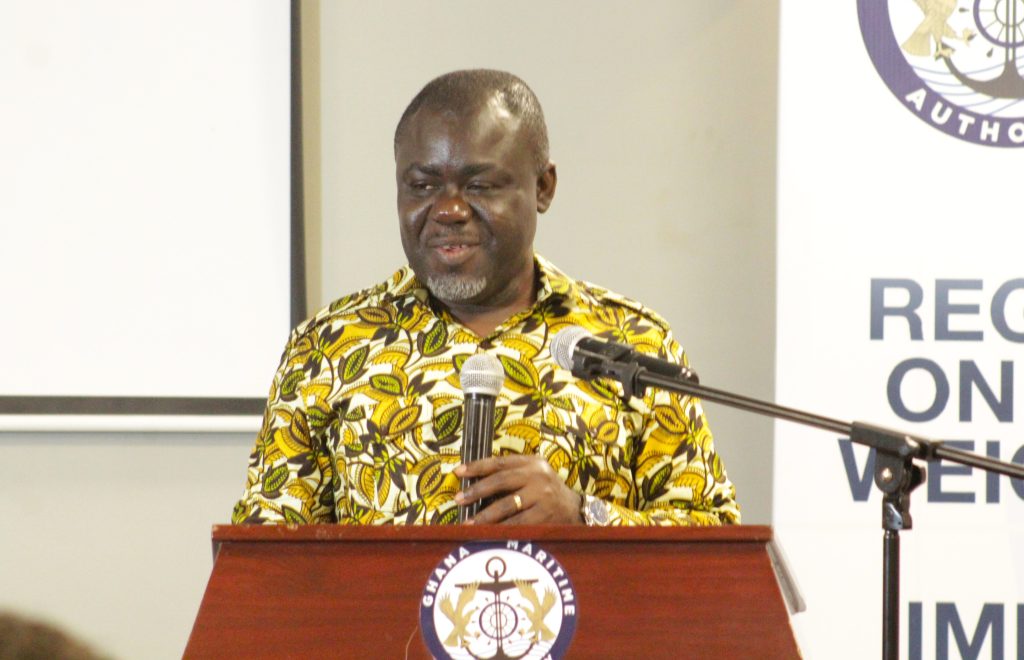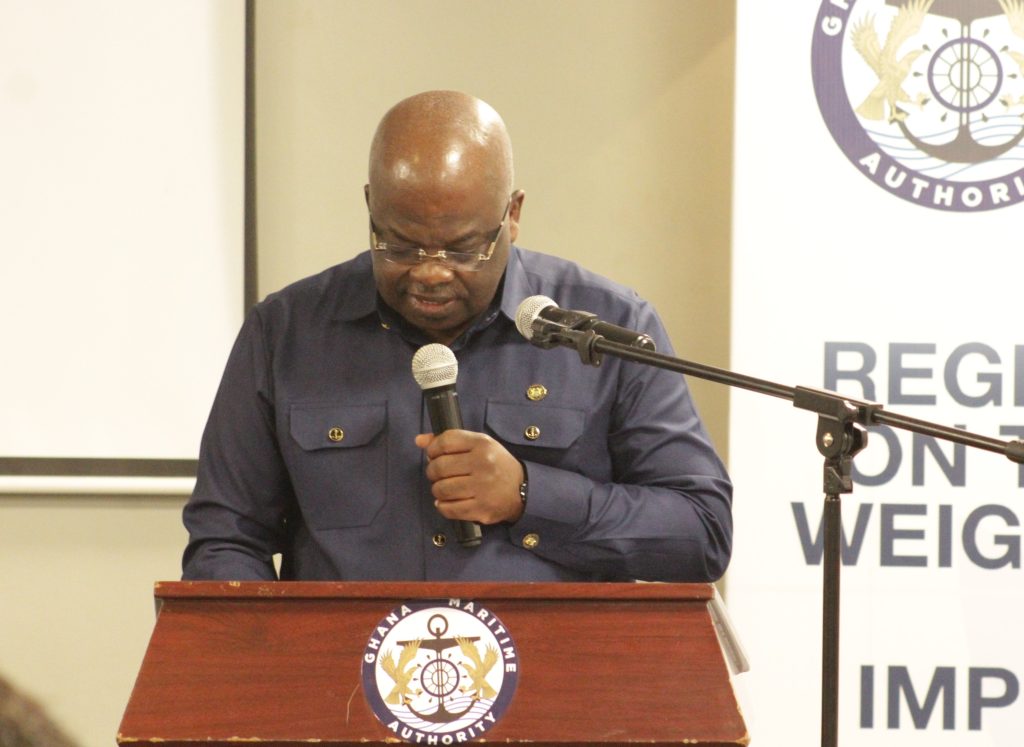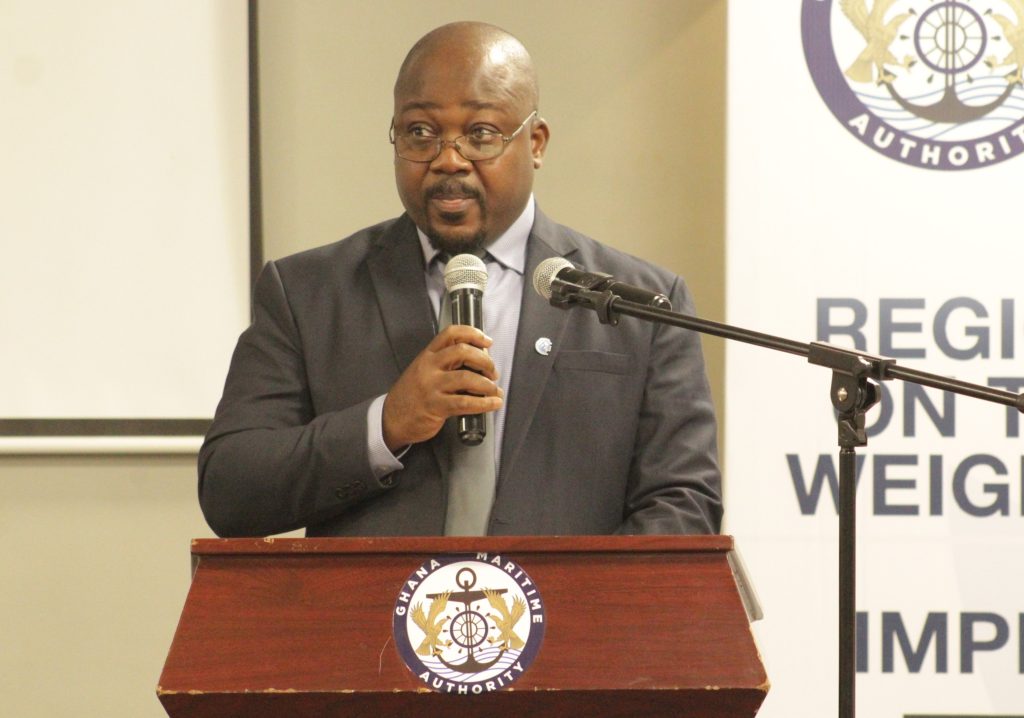By James Amoh Junior
Accra, Sept. 09, GNA – Shippers, shipowners and regional maritime stakeholders are undergoing training on the International Maritime Organisation (IMO) mandatory container weight verification requirement.
The five-day workshop, which has representatives from eight countries in the West and Central Africa Region, including Ghana in attendance, among other objectives, will enhance knowledge in areas of responsibility regarding the verification and documentation of the gross masses of packed containers.
There has been a need to amend the provisions of Safety of Life at Sea (SOLAS) Chapter VI Regulation Two following concerns raised by the shipping industry regarding the mis-declaration of declared gross mass of packed containers, which presents safety risks to workers in the maritime industry.
Therefore, the sensitisation workshop will build capacity and equip participants with requisite skills to effectively implement the requirements contained in the Amendments in various jurisdictions with the aim of improving safety in the shipping industry.

When port equipment and infrastructure is prematurely worn out due to the handling of mis-declared gross masses of containers, especially overweight packed containers, it inadvertently causes major issues for the public and shipping companies.
Those are underpinning factors that led to the Amendment of SOLAS Chapter VI Regulation Two to mandatorily require that packed containers’ gross masses are verified prior to stowage aboard ships.
Among others, the basic principle under the SOLAS requirement states that before a packed container can be loaded onto a ship, its weight must be determined through weighing.
It is a violation of SOLAS to load a packed container aboard a vessel to which SOLAS applies without a proper weight verification as there is no exception to this requirement.
Therefore, the regional sensitisation workshop was initiated by the Ghana Maritime Authority with the support of the International Maritime Organisation to enhance knowledge on verification and documentation of grass masses of packed containers.
Mr Kwaku Ofori Asiamah, Minister for Transport, who officially opened the training, said over the last five decades, transporting goods in containers had literally transformed shipping and logistics providing varied benefits, which otherwise would have been inconceivable.
He said several high-profile accidents over the years had shown that just one overloaded container and poorly packed container with its content unevenly distributed or improperly declared could have some dire consequences.

Mr Asiamah, also the Chairman of the Maritime Organisation for West and Central Africa, admitted that the safety of life and property in the entire logistic chain was essential thus the need for the training on container safety.
He said Ghana had successfully promulgated new regulation to implement the SOLAS Chapter six amendment, adding that the Ghana Shipping Carriage of Containers 2022 LI 2439 entered into force on March 08, 2022.
The regulation, the Transport Minister said, provided for the duties of a shipper, method for determining the verified gross mass of a packed container, electronic transmission of a verified gross mass of information and verified gross mass certificate.
All that, and other initiatives, including the paperless port services, he said, were aimed at modernising and introducing efficiency in the shipping and port clearance processes and also to make Ghana’s port a transit corridor and preferred in the sub-region.
Mr Thomas K. Alonsi, Director-General, Ghana Maritime Authority, stated that the Amendment placed the responsibility for obtaining and documenting verified gross mass of a packed container with shippers.
He said in the country’s efforts to give effect to that, the GMA in the initial implementation stages, published a gazette informing shippers and shipowners of their responsibilities as required in the amendments.
The Director-General said the amendments to the regulation were seen to have substantial impact on the operational practices between parties in the international supply chain involved in the carriage of containers by sea.
Like other SOLAS provisions, he said the enforcement of the SOLAS requirements regarding the verified gross mass of packed containers fell within the competency of the administration and it was also the responsibilities of SOLAS contracting Governments.
Accordingly, Mr Alonsi added that contracting Governments, acting as port states were to verify compliance with the SOLAS requirements, and any incidence of non-compliance was enforceable in accordance with national legislations.

Captain Dallas Eric Laryea, Regional Coordinator for West and Central Africa, IMO, reiterated that the aim of the amendments was to complement the existing provisions aimed at the stability and safe operations of containerships, including safe packing, handling and transport of containers.
GNA